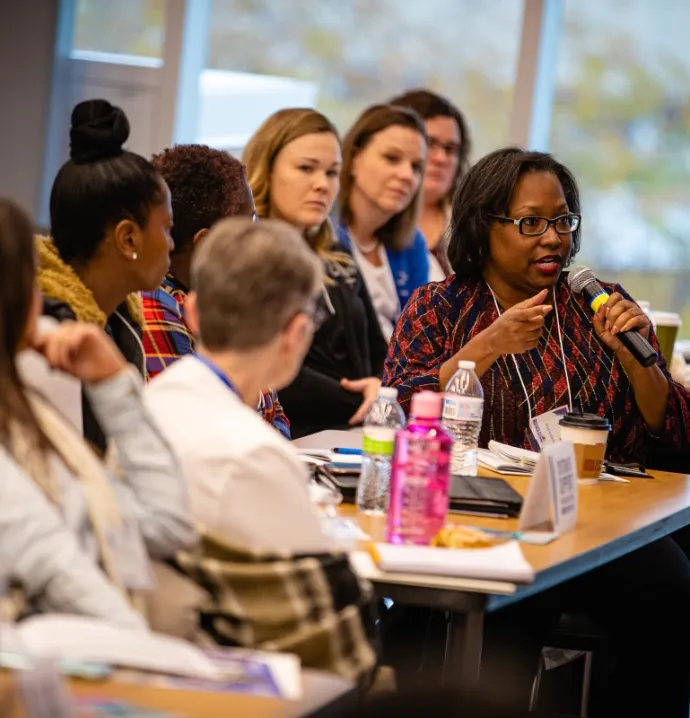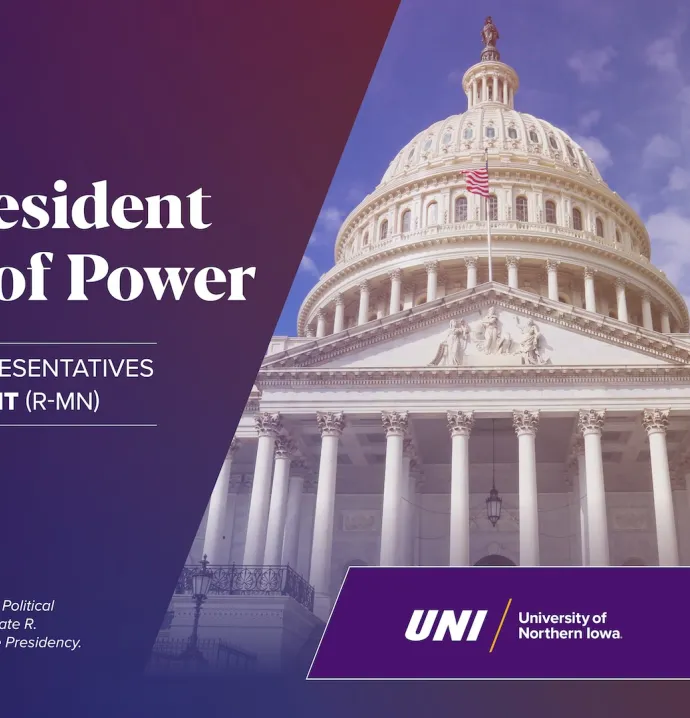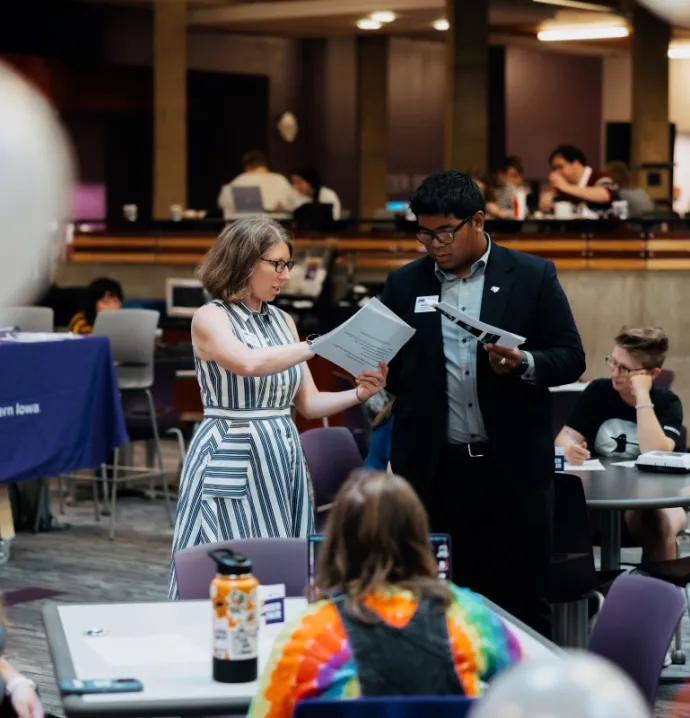'UNI Seven's' courage honored
'UNI Seven's' courage honored
Older now but unbowed, nine members of a group that came to be known as the UNI Seven walked across a Maucker ballroom stage Monday night to be honored for their work sparking change on campus some 50 years ago.
The peaceful protests they were part of led to the creation of what is now the Center for Multicultural Education (CME), UNI’s president said. He said the students also played a role in the formation of UNI’s Center for Urban Education (UNI-CUE), which serves minority and low-income students
“You laid the foundation upon which future work has been done,” UNI President Mark A. Nook told the group. “It’s important that we as a university recognize that while we have made some progress...there is much work to be done.
“The gains that are here - UNI-CUE, the CME, the growth in the number of minority students and minority faculty on our campus, though that still isn’t where it ought to be - you started it. You were a big part of it. So thank you.”
Approximately 60 people attended Monday’s event, which was organized by CME associate director Keyah Levy. It also included remarks from Rev. Abraham Funchess, director of the Waterloo Commission on Human Rights. Funchess praised the courage and tenacity the former students had shown in bringing change to campus.
“That was a very remarkable feat,” said Funchess during a video that was shown later. “These dynamic individuals (were) involved in something that has continued to make history.”
The former students were part of a group of student activists who staged a sit-in at the house of then-university President James William Maucker, demanding that the university vice president’s home - now the Honors College - be converted into a cultural house. It was part of a broader set of demands aimed at improving the support and treatment of black students on campus
In 1970, the Board of Regents did not act on a proposal to designate a cultural center on campus. Nine students - Tony Stevens, Terry (Pearson) Stevens, Glen Moore, Terry Sallis, Byron Washington, James Johnson, Toni Copeland, Leon Creighton, who is now deceased, and Trina (Turner) Creighton - protested by remaining in Maucker's home overnight. They were later joined by others.
Eventually six black students and one white student - four of whom were part of the original sit-in - were suspended and became known as the UNI Seven. They are Tony Stevens, Terry (Pearson) Stevens, Byron Washington, Ann Bauchman-Burke, Palmer Byrd, Joseph Sailor and Christopher "Chip" Dalton.
Bachman-Burke and Washington were not able to attend Monday.
Those suspensions sparked an eruption of protests that eventually led to the creation of the Ethnic Minorities Cultural and Educational Center, which is now located in the Maucker Union as the renamed Center for Multicultural Education.
Art department instructor Angela Waseskuk told the crowd Monday that a piece of art had been created commemorating the UNI Seven that now hangs in the CME.




